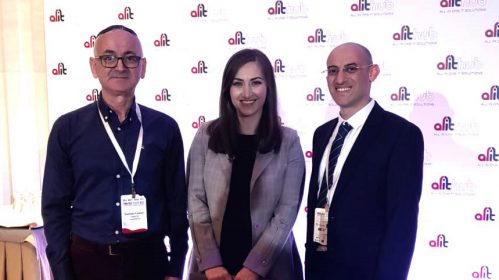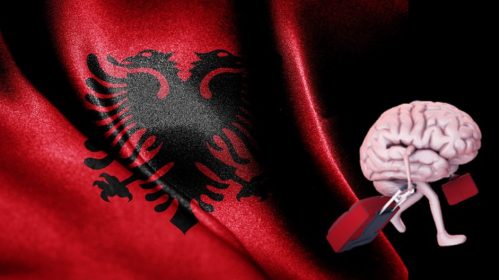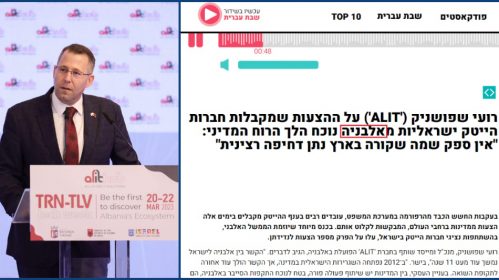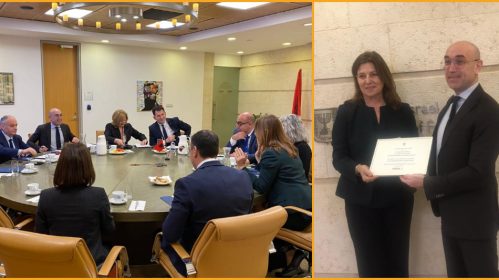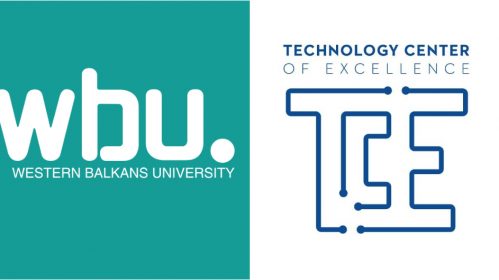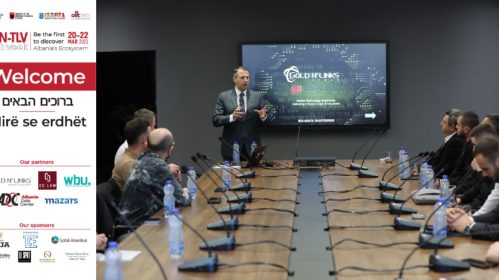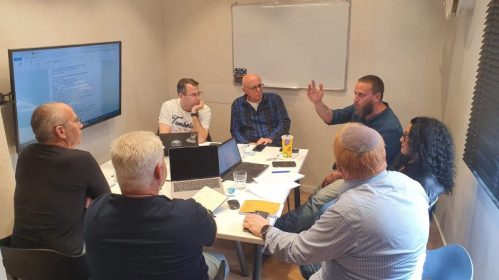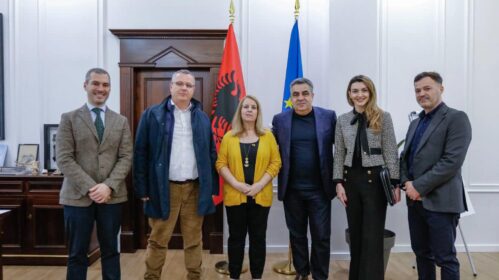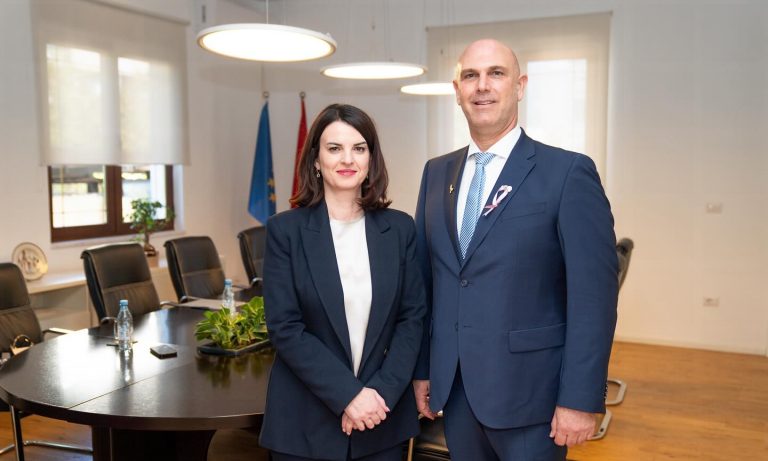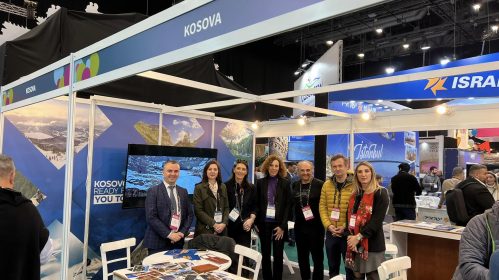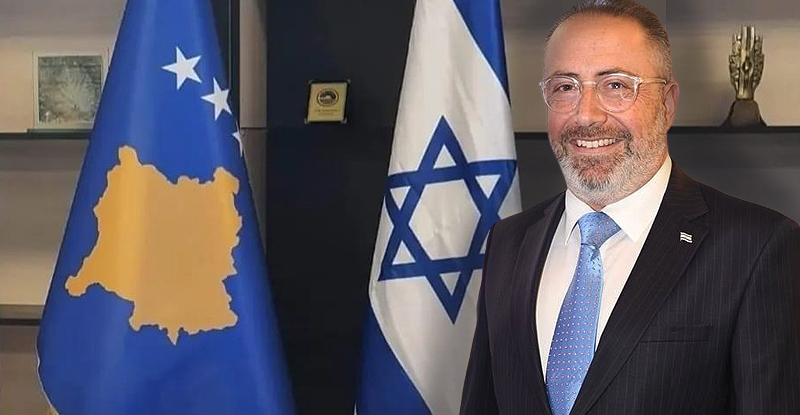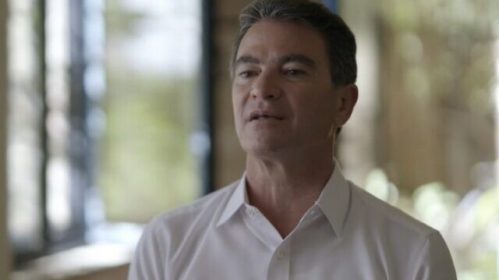By Lawrence Marzouk Interview
Locked in the vaults of one of the world’s most secretive regimes for half a century, the incredibly story of how Albanians saved the lives of thousands of Jews during the Holocaust is only today emerging.
From The Diary of Anne Frank to Schindler’s List, the Holocaust has proved fertile ground for Hollywood directors. But the story of how 2,000 Jews were offered safe haven in Albania during the Second World War has so far escaped the attention of Spielberg and his cohorts. Dardan Islami believes his latest documentary, which delves into this fascinating slice of history, could soon pique their interest.
“Nobody had heard about this story because it was closed inside the Communist regime in Albania,” Islami, film director and founder of Prishtina’s Urban FM, told Prishtina Insight.
Rescue in Albania is the result of painstaking research which has taken Islami and his colleagues from the remote Albanian mountains to New York and Tel Aviv, in search of those who were given refuge in Albania and Kosovo.
The documentary, which premiered in Kosovo’s capital last month, tells how Albania was the only country in Europe to emerge from the Second World with a larger Jewish population than before. Islami hopes this will be the first of many screenings across the globe.
Before the Holocaust, just 200 Jews lived in Albania, but the population swelled by 2,000 as the Nazis implemented their policy of mass extermination throughout continental Europe.
According to research by the film team, the London-based Jewish Daily Post reported in July 1935: “It has been a month since the Albanian diplomats in Europe have been implementing the order received from King Zog’s government to issue as many Albanian passports to Jews wanting to go and live in Albania.”
Information from the Albanian national archive in Tirana confirmed that King Zog I invited Jews to Albania in the 1930s to help develop the country. Most obtained Albanian visas and some were even issued Albanian passports.
In 1935, Albert Einstein benefited from Albanian help to transit through Europe to America. He stayed in Durrës on the Albanian coast for three days in the royal mansion and then, equipped with an Albanian passport, continued his journey towards the free world.
During the war, Albania and Kosovo were initially under Italian occupation. The local Albanian government used its authority under a deal with the Italians to refuse to hand over lists of Jews to the German forces.
Jews found shelter in many Albanian households in cities, but when the threat grew too high from the occupying forces’ frequent checkpoints, many escaped to the remote mountains and pretended to be local shepherds. They were provided food and shelter by the local Albanians.
Islami said: “These Albanians had nothing, but they were willing to share their piece of bread with those in need.”
Speaking from Tel Aviv, Felicita Jakoel, whose parents were given safe haven by Albanians during the war, told the documentary makers: “A lady told me a story once. She said: ‘We arrived in Albania with false documents. At the border, they easily realised that, but they let us pass. My father rented a horse and put us kids on its back. After a lot of travelling, we arrived at a village, completely lost.
‘There we rented an old house. One night, we heard a knock at our door. We thought it was the Germans and that they would kill us all. We opened the door and saw an old villager on a donkey. He put down a sack of flour and left without saying a word. That sack of flour saved our lives. This happened to us throughout our whole stay in Albania.’
According to some, besa, the Albanian sworn oath with its duty towards guests, was a key factor in Albanian generosity towards Jews in need.
The Albanian Kanun, the code of conduct, states that the Albanian household belongs both to God and to the guest.
“Besa was the most important factor: the Albanians said that they would rather die before anyone harmed a guest,” Islami explained.
When several hundred Jews from Mitrovica in Kosovo, which was under German rule, were deported to concentration camps in Serbia and later to Austria and Germany, the local authorities started to transfer Jews secretly to remote areas of Albania.
In April 1942, 100 Jewish families left Kosovo for Berat, Albania, and 195 people went to Kavaja, Albania. Others were placed in Kruja, Tirana, Fier, Shijak, Shkodra and elsewhere. Many were employed in shops, manufacturing and agriculture.
In Berat, 38 Albanian families sheltered about 600 Jews arriving from 1942. 350 Jews came from Dalmatia, Montenegro, Serbia, and Macedonia, and 400 from Greece.
Some Jews were provided with identity cards, giving them local Albanian names to hide their true origin from the Italian police and military.
Rakela Kantozi, who now lives in Modi’in, Israel, said: “We escaped from Mitrovica to Prishtina, helped by an Albanian family.
“One guy from Shkodra, Shaqir Boriçi, asked me why I was selling these biscuits every day.
“I told him the truth, that we were not from here and that we were hiding from the Germans. After hearing that, he would help us a lot.
“He let us in his house. We hid in one of the rooms. One of his daughters became a good friend of mine. This lasted until the country was liberated.”
The Italian capitulation in 1943 led to the arrival of German forces, and a more ruthless approach to Jews. But the struggle to rescue them continued.
According to the filmmakers, Hysen Prishtina and Riza Drini, the mayors of Prishtina during the war, did not allow Jews to be handed over to the occupying regime.
They organised the safe passage of hundreds of Jews to Albania. Prenk Uli, the secretary of Pristina district, also helped 52 Jews from Prishtina flee to Albania.
The part Albanians played in protecting Jews has been recognised at Yad Vashem, Israel’s official memorial to the Holocaust. The names of some of the rescuers are engraved there.
“If every country and every nation had done what the Albanians did, the Holocaust may never have happened,” Islami said.
http://www.balkaninsight.com/en/article/rescue-in-albania-how-thousands-of-jews-were-saved-from-the-holocaust





